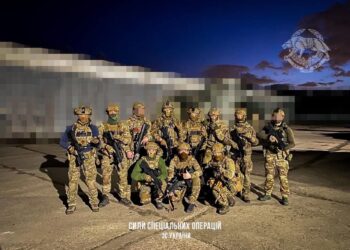Following the collapse of the Bashar al-Assad regime, Syrian rebels have begun uncovering an extensive Captagon drug network that thrived under the rule of Assad’s brother, Maher al-Assad, and the elite Syrian army 4th Armored Division.
The discoveries, which include drug manufacturing labs and front companies, come as opposition forces complete their takeover of Damascus and dismantle key elements of the former regime’s illicit economy.
Several videos circulating on social media show rebel fighters storming what appears to be large Captagon production facilities. In one clip, fighters enter a lavish mansion alleged to have been used as a drug manufacturing site, though its ownership could not be independently verified.
For years, the Syrian regime denied that captagon production happened within territories it controlled.
Yet in the first three days since Assad left, we’ve found industrial-scale captagon trafficking and manufacturing facilities in:
1. Mazzeh Air Base (likely affiliated with… pic.twitter.com/1rNH3A7q5j
— Caroline Rose (@CarolineRose8) December 11, 2024
Millions of Captagon drug pills were found in Maher al-Assad’s
Division 4 headquarters.Captagon pills are a highly addictive and illegal drug, primarily produced in Syria, with a strong CNS stimulating effect.
They are often manufactured illegally and contain a mix of… pic.twitter.com/415WXBKAfL
— Boone Cutler


(@boonecutler) December 11, 2024
Other footage reveals rebels destroying thousands of Captagon pills while expressing outrage, calling the drug “poison” and accusing the Assad regime of exploiting Syria’s devastation to profit from illegal narcotics.
Footage shows Syrians destroying drugs — pill of captagon. Under Assad, the country became notorious for producing and exporting this cheap narcotic. Islam prohibits drugs, but many Islamists groups have engaged in such profitable trade, and used pills when sending their… pic.twitter.com/8MccXa9N0c
— Hussain Abdul-Hussain (@hahussain) December 9, 2024
In another significant finding, rebels uncovered massive stockpiles of the stimulant at Syria Car, a front company reportedly linked to Hafez Munther al-Assad, Bashar al-Assad’s cousin’s son. Images from the site showed large quantities of pills dumped outside the factory and into nearby drains.
Captagon, an amphetamine-type stimulant sometimes referred to as “poor-mans cocaine,” has become synonymous with addiction and smuggling in the Middle East. Originally developed in 1961 for medical purposes, its active compound, fenethylline, was later banned due to severe side effects and its high addiction potential.
Over the past decade, Captagon has fueled an illicit trade worth billions, much of it centered in war-torn Syria. According to the United Nations Office on Drugs and Crime, Syria and Lebanon remain the primary departure points for Captagon shipments, with global seizures reaching a record 86 tons in 2021.





